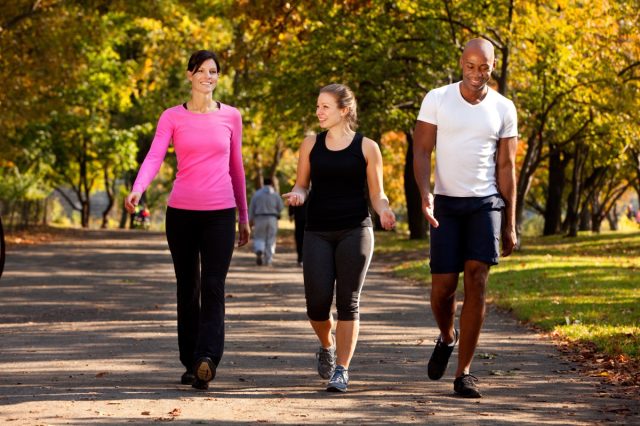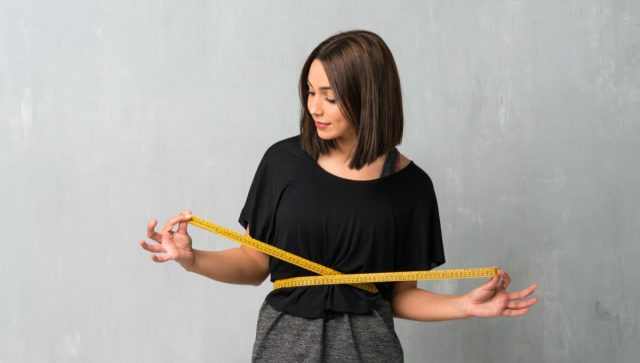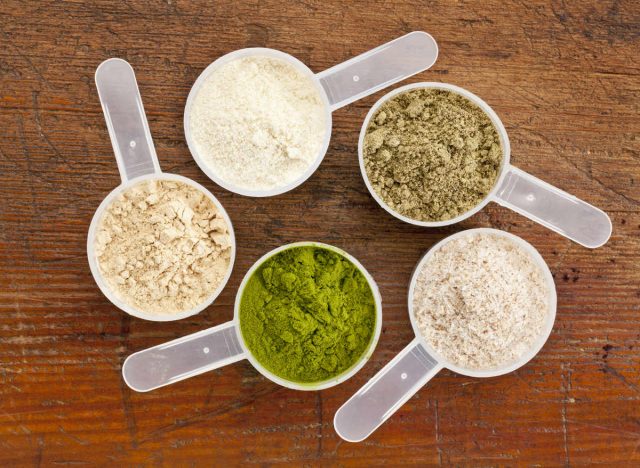High cholesterol—that’s something you get from eating too much steak, eggs, and butter, right? Not exactly. Although decades of TV commercials for margarine planted that idea in Americans’ heads, today experts say dietary cholesterol doesn’t have the effect on blood cholesterol that was once believed. And the picture has always been more complicated. Many factors can lead to high blood cholesterol, which increases your risk of cardiovascular disease. You might be driving up your numbers with daily habits you never associated with that critical health marker. And you might be able to improve them with one simple addition to your routine you hadn’t heard about. Read on to find out more—and to ensure your health and the health of others, don’t miss these Sure Signs You’ve Already Had COVID.


If you don’t automatically associate alcohol with your blood cholesterol level, you’re not alone. But research shows there’s a major correlation: Regularly drinking to excess can increase your level of triglycerides (a type of fat in the blood) while increasing LDL (“bad”) cholesterol and lowering HDL (“good”) cholesterol. All that can be very bad news for your heart, raising your risk of heart attack and stroke. To help keep your cholesterol in a healthy range, drink only in moderation—meaning no more than two drinks daily for men, or one drink daily for women—or not at all.


Many people associate their cholesterol level entirely with diet and don’t consider other factors. That’s a mistake. Exercise, in particular, can help raise HDL, the “good” cholesterol, thereby helping eliminate dangerous LDL cholesterol. “Aerobic exercise that’s repetitive and works multiple muscle groups, is the best exercise to reduce cholesterol,” says the Cleveland Clinic. Experts recommend getting at least 150 minutes of moderate-intensity exercise each week, ideally spread throughout the week.
RELATED: Causes of Visceral Fat You Need to Know Now


Smoking isn’t just bad for your lungs. It elevates bad cholesterol and triglycerides, while lowering good cholesterol. The toxins in tobacco also damage the walls of blood vessels, which contributes to atherosclerosis (hardening of the arteries) and “greatly increases your risk of heart disease,” says the CDC. It’s estimated that smoking causes one out of every four deaths from cardiovascular disease. Quitting can slash your risk.
RELATED: FDA Just Issued These Serious Recalls of Health Products


Being overweight (having a BMI over 25) or obese (a BMI over 30) increases the amount of LDL (“bad”) cholesterol in your blood. “Excess body fat affects how your body uses cholesterol and slows down your body’s ability to remove LDL cholesterol from your blood,” the CDC says. “The combination raises your risk of heart disease and stroke.”
RELATED: Major Health Secrets After 60, Say Experts


Eating food that’s high in saturated fat and trans fats may contribute to a high cholesterol level. The CDC’s recommendations for healthy eating: limit foods high in saturated fat, sodium, trans fats and added sugars; add more foods that are high in fiber and healthy unsaturated fats.
Possibly the least-known trick that has been shown to lower cholesterol: Adding whey protein to your daily routine. “Studies have shown that whey protein given as a supplement lowers both LDL cholesterol and total cholesterol as well as blood pressure,” says the Mayo Clinic.
And to get through this pandemic at your healthiest, don’t miss these 35 Places You’re Most Likely to Catch COVID.